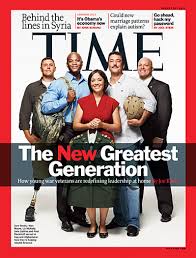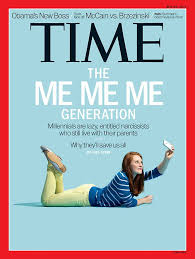“Extraversion and Introversion–I do both of these. Why do I have to choose?” I’ve never had a Type discussion that this comment does not come up, on any or even every dichotomy. But I’m finding that the more Millennials I have in the audience (people born since 1980), the more frequent and insistent this push-back becomes. I have found (and am finding) Millennials to be less open to the idea of the dichotomy—the either-or nature of the MBTI and Type’s hard-wired preferences. Millennials and the MBTI have an increasingly complicated relationship.
In light of our behavior (how each of us acts—what we do and say from day to day or time to time), it can be easy for anyone to see and want to claim both ends of these Type dichotomies, for we all DO both. We extravert (talk and focus externally) but we also introvert (reflect and internalize). As people, we do both, but Type is not about what we DO. Type is (is and has always been) about what we prefer—our hard-wired cognitive preferences, where we are when the ball comes at us.
Knowing these preferences allows us to know what behaviors are easy and which are more challenging—what we do automatically versus that we do because we need to. On the whole, Millennials tend to embrace and even admit to these preferences with reluctance.
My experience with the Millennial generation (now spanning high school students to folks in their early 30s) is that, unlike past generations, they have had a variety of experiences that have de-emphasized the need to limit themselves with a choice:
- Radio used to offer a handful of local channels; no Millennial remembers such a thing. Today, internet and satellite radio offer hundreds, if not thousands of choices.
- TV also used to have a few broadcast options, and even early cable had only a dozen or so. Today, there are thousands of viewing choices, many of which are geared specifically to the individual and his/her interests, age group or demographic.
- Internet connectivity gives nearly infinite options on data, information, and entertainment. Now many Millennials have multiple screens—computer monitors, TVs, pads, smartphones; I can plug into all of them. No choices (this OR that) are required.
- Millennials have been raised by both Gen Xers and Baby Boomers, both of whom felt rather disconnected and un-affirmed by their parents. Millennials’ parents have made up for that by raising a generation of kids (now young adults) who have—as a group—been actively affirmed and often even catered to.
It is my belief that a combination of these forces (and others, of course) underpins the Millennials’ collective resistance to the either/or foundation of the MBTI assessment. “I want this AND that; I want both” is more often the approach.
Of course, they (along with everyone else) can and do have both. We can and do access both; Type just tells us where we start. In fact, knowing where we start–knowing our preference–makes it that much easier to gain access and then even competence in both Thinking and Feeling, Extraversion and Introversion—our whole being.

Excellent and timely post, Hile! I confirm your belief about the combination of these forces and assessment as I constantly observe and attest to the same remarks. It seems to add to a body of research on this generation that speaks to their perceived lack of conviction. I plan to add a polling question to my next generation’s presentation to gauge these phenomena and to also encourage a conversation about how this, “I want BOTH” approach may impact their personal and career development and growth. Your thoughts?
Hello Hile: Thanks for the post and as always some great insight into type. Millennials have become almost a daily conversation by older generations who encounter issues when trying to sell products or ideas to them. I work with some folks in the financial areas especially in mortgage lending where I find a real disconnect between the “older” trying to engage in real conversation versus texting, email and can I find it on your website?
Do you find this in your business? Thanks, Robert